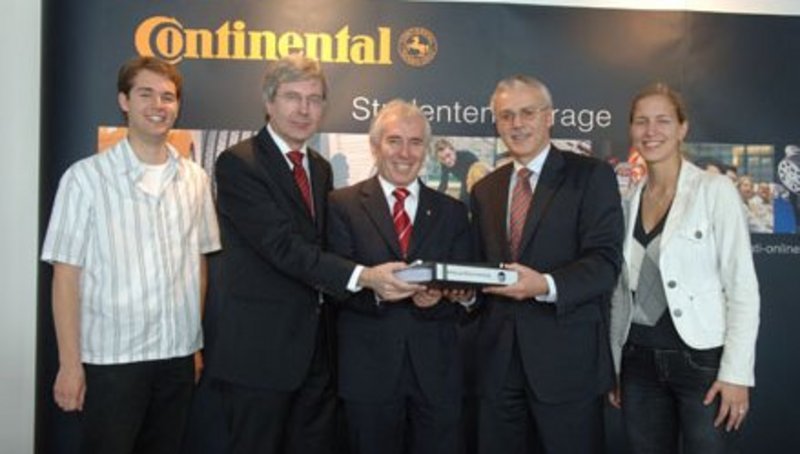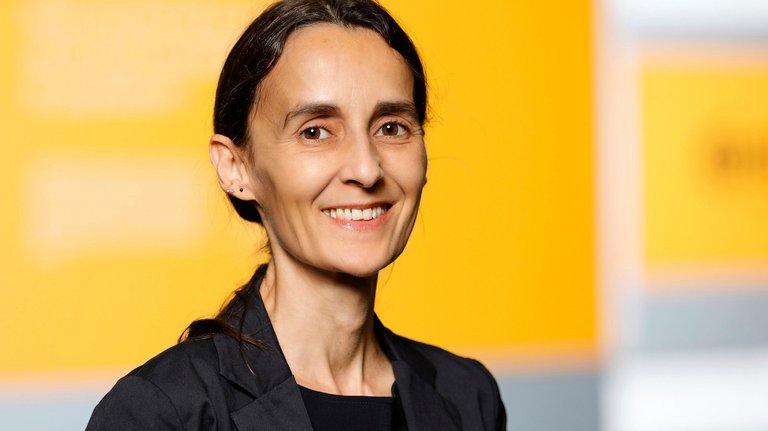4th "Continental Student Survey": German Students Still Not Addressing Globalization Trends Sufficiently in Their Studies
Graduates do not make extensive use of university offerings called for in field of internationalization and expertise training – Vast majority do not recognize any reform efforts – Bachelor and Master degrees still shunned
Hanover/Frankfurt, June 5, 2007. The vast majority of German students do not prepare themselves sufficiently for the working world characterized to an ever greater extent by globalization trends. Only seldom do they take advantage of the internationalization courses offered by the university, which they themselves have in part called for. Only a small minority attains practical skills such as project management, the ability to work in teams, and leadership quality. At the same time, the graduates' assessment of their own career possibilities is more optimistic than it has been for years. These are the findings of the representative 4th Continental student survey presented by the international automotive supplier on Tuesday in Frankfurt/Main, in cooperation with the Technical University of Darmstadt (Germany). Continental is set to recruit more than 1,300 graduates this year, of which around 400 will be based in Germany.
For the fourth time since 2003, the Corporation commissioned TNS/Infratest early this year to ask around 1,000 students their opinions on career, qualifications and university reforms. This year, the survey focused particularly on the topic of globalization, which is viewed by the graduates mainly under economic aspects. Opinions on this topic are for the most part neutral, but there are however many more negative than positive associations. With regard to their professional and personal life, globalization means for most students: "Working abroad" (38.3 percent). About 20 percent of the comments refer to "greater competitive pressure".
"We find some of the results of the survey to be somewhat concerning: In part, they give the impression that graduates are still underestimating the dimension of globalization and the extent to which they themselves will be affected by it," said Continental Human Resources Director Heinz-Gerhard Wente. "The students are aware of the increasing requirements for greater international knowledge, skills and expertise, and accordingly, they demand that universities teach such skills. This is not, however, reflected by their behavior." Wente sees the cause of this partly in the increased optimism when it comes to career expectations: "To be sure, this trend is gratifying, and of course we need graduates for our German locations as well. But the students should not neglect the international and practical aspects of their education." At present, 73 percent of graduates are "highly confident" or "confident" about their career opportunities, compared to just 63 percent four years ago. These expectations for the future correlate to the improvement in the way they perceive the competitive ability of German companies. Of those interviewed, precisely two out of three feel that this ability is "good" or "very good". Two years ago, just every other student was of this opinion.
"Students have indeed recognized that their professional perspectives will improve considerably in the future as a result of the demographic development in Germany. They have not, however, realized that this will involve a significant increase in academic productivity in a globalized environment," says Prof. Uwe Kamenz of the Dortmund University of Applied Sciences, co-author of the book "Professor Untat", in evaluation of the study findings. He cited the attitude of students towards globalization shown by the survey as a danger for Germany's economic future: "After all, it is today's students who in ten or twenty years are to take on positions of responsibility in German companies, which by then will be globally structured, at a time when the numbers of academics will be dropping sharply."
"Globalization is by all means seen as an opportunity, but also as a threat. When it comes to the development of one's own qualifications, however, there still is not enough significance attached to globalization," said Prof. Dr.-Ing. Reiner Anderl, Vice President of the Technical University of Darmstadt, giving his assessment of the study.
Wente said it is "alarming" that the number of students who have not completed an internship has doubled in the last four years. One in three does not have an internship on their resume. At the same time, the percentage of those interviewed who had voluntarily completed an internship had decreased substantially from 57.6 to 47.5 percent, and the number of internships in other countries and semesters studied abroad dropped as well. The most difficult obstacle for studying or doing an internship abroad is the financing (31.9 percent), followed by bureaucratic obstacles (21.9 percent). Just 37.3 percent of those interviewed indicated that they know how to apply successfully for an international internship. At the same time, just 28 percent of the students said that attaining international expertise is an integral part of their education.
The reluctance displayed by university graduates regarding their own perspectives abroad is also reflected in what they think about choosing a job in the future: Fewer and fewer are prepared to accept a job with a company if the position offered is in a country they feel is not very attractive: While four years ago 30 percent would have been willing to take on a job in China or Asia, now just 20 percent would. Roughly just as many would be prepared to work in one of the Eastern European countries new to the EU in 2004, and only 10 percent in one of the countries joining the EU in 2007. And even the USA is losing its attraction, although still more than 50 percent of those surveyed would be willing to work there. "Apparently personal opportunities in future markets are underestimated by a growing majority," said Wente.
The Study:
Here you can download the whole study as a pdf file (only available in German). - pdf (1.31MB)
Here you can download the long version of the press release. - doc (61KB)
Here you can download the short version of the press release. - doc (61KB)

